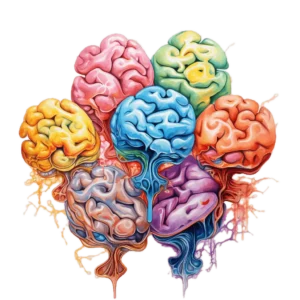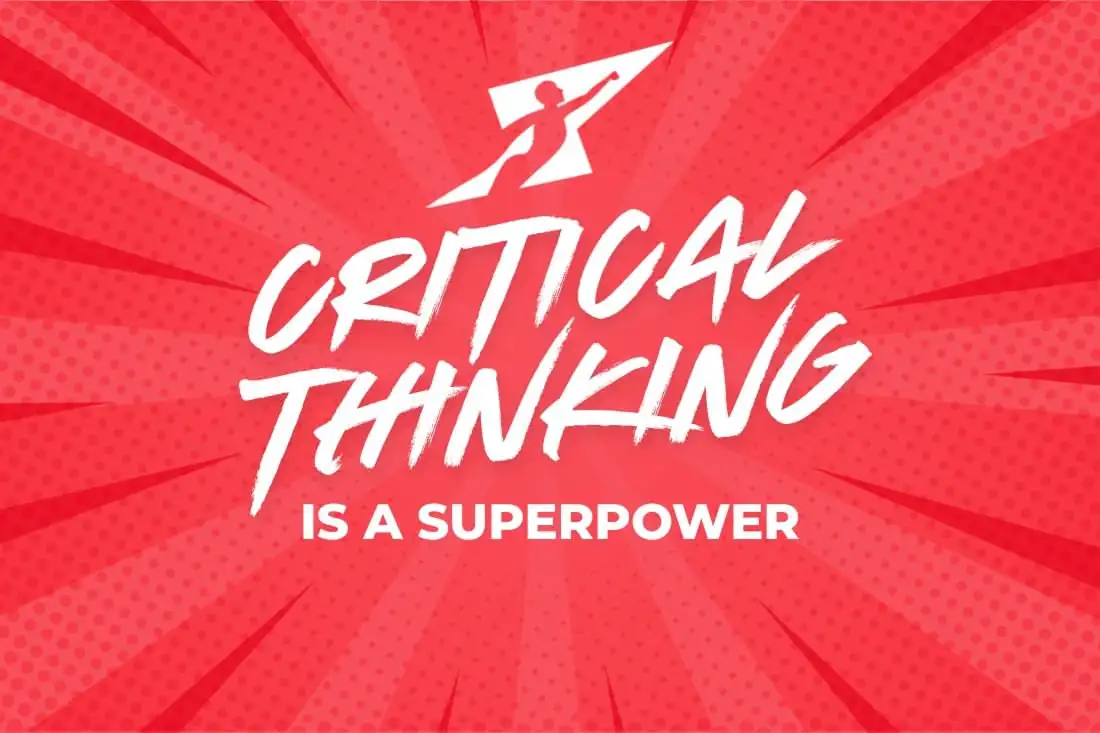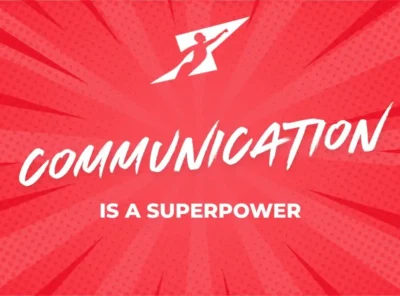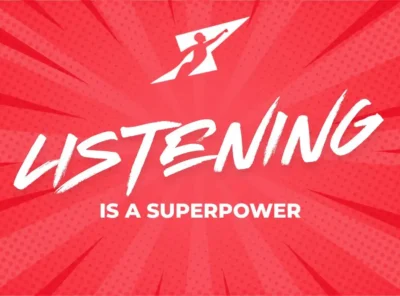Critical Thinking is a Superpower
“If we are not able to ask skeptical questions . . . to interrogate those who tell us something is true, to be skeptical of those in authority . . . then we are up for grabs for the next charlatan, political or religious, who comes ambling along.”
-Carl Sagan, 1996
I thought it might be useful to look at a vitally important skill that seems to be slowly disappearing from modern life: critical thinking.
- It is clearly missing in our politics, where the most obvious and egregious lies are delivered from the highest positions in the land and parroted, without correction, across our media landscape.
- It’s clearly missing in our companies, where ever-increasing speed mixes with escalating fear, uncertainty and doubt, to pushes people to skip questions and thinking, entirely.
- It’s missing in our education, where ever before recent attacks on truth, we were spoon-fed a version of history that fails to address our greatest errors and abuses.
In the absence of critical thinking, we will neglect to ask the questions that lead us to truth. We will miss our opportunity to learn and grow as individuals and as a society. The consequences of losing this skill, or failing to develop it in coming generations, is an existential threat to stability, safety, and progress.
So, let’s rediscover and reclaim critical thinking from a world that would prefer to lead a docile humanity off the cliff.
Assurity is Weakness
If you wish to fix anything you don’t understand, the first step would be to ask a question, not to assert your solution.
And yet, too often, we can find ourselves in a battle with those who disregard expertise, who shun the rigor of study, the clues left by data, and the value of experience.
Instead, we may find ourselves stuck in a war of ideas where one side is asserting, without evidence, a premise, and then working tirelessly to reverse engineer the proof.
We can easily imagine this in the comments section online, but it happens at work just as often. We find ourselves in a room with someone whose title or salary have convinced them that their opinion must be given preference, regardless of the subject matter. Soon enough you find yourself accountable to deliver an outcome, with their specific process.
In any of these cases, the obstacle is someone’s certainty standing in the way of curiousity and analysis.
More than Questions
If being sure is the problem, then the answer must be to remain open minded and ask more questions, right?
While that’s a good start, there are some critical details we need to understand.
Scott H. Young, author of two of my favorite books, Ultra-Learning and Get Better At Anything, released an article in 2019 called *How to Improve Critical Thinking.* It’s definitely worth reading.
He proposes some key ideas for improving critical thinking, including:
- Add more contexts to counteract common mistakes of reasoning
- Talk to more people and have more debates
- Be smarter and know more
It turns out the critical thinking isn’t just about the problem being critically examined but also critically examining ourselves throughout that process.
- Am I tired or cranky right now?
- Is my ego involved in this line of questioning?
- How much do I actually know about this subject matter?
But there’s one more aspect of critical thinking that often goes completely unnoticed.
The Way You Think

It’s easy to grasp the concept that other people may think differently than you do. But that idea is most commonly understood in terms of the contents of one’s thoughts, not the structure.
Said differently: you get that people are thinking about other things, but you probably don’t get how they think about other things.
For instance, I am Autistic and have ADHD (AuDHD). Both my wife, and my business partner do not have either of these neurotypes. Even when we think about the same subject, the structure of our thoughts, our ways of understanding concepts, and the questions we might think to ask, are entirely different.
We differ in our abilities to think linearly or non-linearly, literally or in the abstract, and even the speed at which we process and understand something.
Simply put, even if we were to ask the same questions, talk to the same people, and study the same facts, we would still be critically thinking differently.
The Critical Factor
In the midst of all these ideas, and all of this context about critical thinking, there’s a big factor that must be present for any of this to even matter.
We need to be clear about our purpose.
Because if our purpose is the pursuit of the best answer, that will shape our critical thinking differently than if our purpose is to arrive at a particular outcome or approach.
There are countless lists of critical thinking questions you can ask to go deeper, see problems more clearly, and identify better solutions. But all of these are beholden to the underlying purpose that drives that line of questioning.
So, before you attempt to incorporate the power of critical thinking into your life, ask yourself what you are after.
For me, I am first and foremost in pursuit of a better world. That means one that is kinder, safer, and more equitable. It is one where we work together to ensure everyone has what they need. That is my North Star. After that, I am always looking for what is factually correct and most efficient.
So, when I critically examine anything, I am keenly aware that these idea are shaping the questions I ask.
Critical Thinking: The Superpower
What makes critical thinking a superpower, is that it gives you the opportunity to be an active participant in how things unfold.
- It gives you the power to solve problems more effectively.
- It gives you a model to get clear on the world you want to create.
- It gives you the tools to decide what you believe and what you accept.
- It gives you a weapon to fight back against those who seek to control or manipulate you.
Critical thinkers are sand in the gears of the machinery of evil. They are the safeguards protecting us from careless error. They are the confirmation we need to trust in good ideas.
Critical Thinking is a catalyst pushing us out of stagnation, and the tool we need to see truth more clearly.
Define your purpose, open your mind, and embrace this superpower. We need it now more than ever.




